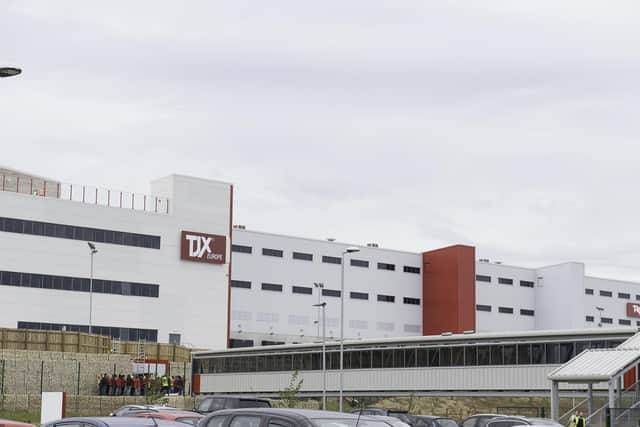Give councils control of levelling-up funds – Bridget Rosewell


For the National Infrastructure Commission’s part, we have made a simple proposal to government on how towns in particular can be better supported. That is to hand local elected leaders the resources to develop a clear vision and strategy for the economic development of the towns in their area, based on local strengths and priorities.
We think infrastructure – whether road improvements, superfast broadband or public transport services – can play an important role in those strategies. Done properly, such investment can boost economic growth and improve quality of life, making our daily leisure and business activities smoother.
Advertisement
Hide AdAdvertisement
Hide AdOne example that came up repeatedly in our work is connecting people with major employment sites on the edge of their town. The TK Maxx distribution centre near Knottingley – one of the “five towns” east of Wakefield – employs around 2,000 people.


As part of the planning consent process, the developer was told to arrange a bus service between Wakefield and the site, to ensure those working different shift patterns had a way of getting to and from work without a car. However, without the hook of the planning consent process to mandate it, providing safe and accessible links to existing employment sites can be challenging.
Our report notes that it has been difficult, for instance, to secure a public transport solution between West Yorkshire and the Sherburn Industrial Estate, only a few miles over the county border near Selby. While all the local authorities and commercial interests have been trying hard to find an answer, it highlights the need for long-term transport and development planning to be aligned.
To do that effectively, we need to reflect the distinctiveness and strengths of our towns – which typically enjoy very different identities, sometimes due to long-standing connections with specific industries.
Advertisement
Hide AdAdvertisement
Hide AdYorkshire is a prime example. Huddersfield, Harrogate and Hornsea each face different economic opportunities and challenges. The infrastructure solutions to help address these will therefore be different.


So we think the logical thing is to give local authorities the money to enable them to deliver their own locally tailored strategies, rather than spend time competing with one another for pots of money announced by government for specific things.
We’re calling for a streamlining of the current array of around 15 different funding streams for local transport into just two – devolved five-year budgets based on an even spread basis, with targeted funding for priority areas where infrastructure can make a real difference.
There’s precedent for this, as readers close to some of Yorkshire’s biggest cities will know. Five-year transport budgets have already been promised to metro mayors – like Dan Jarvis and Tracy Brabin – enabling them to take a more strategic approach to economic development across their city regions.
Advertisement
Hide AdAdvertisement
Hide AdBy taking the next logical step and giving a similar deal to county and unitary authorities, government will unlock resources within our councils to focus on planning and delivering infrastructure, rather than bidding for money from central government.
But it will also achieve a levelling up of accountability. Local strategies should set out clear, transparent outcomes against which councils – and more importantly local residents – can measure their progress.
Infrastructure investment alone cannot be expected to change economic fortunes and a range of areas of policy – notably education and skills – are also critical.
There are also some specific steps we think government is best placed to take – like speeding up the rollout of gigabit broadband and electric vehicle charging points where the commercial market alone will not cover everywhere.
Advertisement
Hide AdAdvertisement
Hide AdGovernment should also take steps to help businesses make the most of new communication technologies, such as 5G wireless technology, and we propose that funding is made available to trial new technologies.
But most things are best co-ordinated at a sub-regional level, with the various councils of Yorkshire being an obvious example. In short, levelling up cannot be done from Whitehall. It will involve some letting go by central government. But ultimately, the prize of levelling up requires a combined effort – which means local councils need to be empowered to deliver for their residents and be held accountable for doing so.
Bridget Rosewell is the National Infrastructure Commissioner.
Support The Yorkshire Post and become a subscriber today. Your subscription will help us to continue to bring quality news to the people of Yorkshire. In return, you’ll see fewer ads on site, get free access to our app and receive exclusive members-only offers. Click here to subscribe.
Comment Guidelines
National World encourages reader discussion on our stories. User feedback, insights and back-and-forth exchanges add a rich layer of context to reporting. Please review our Community Guidelines before commenting.